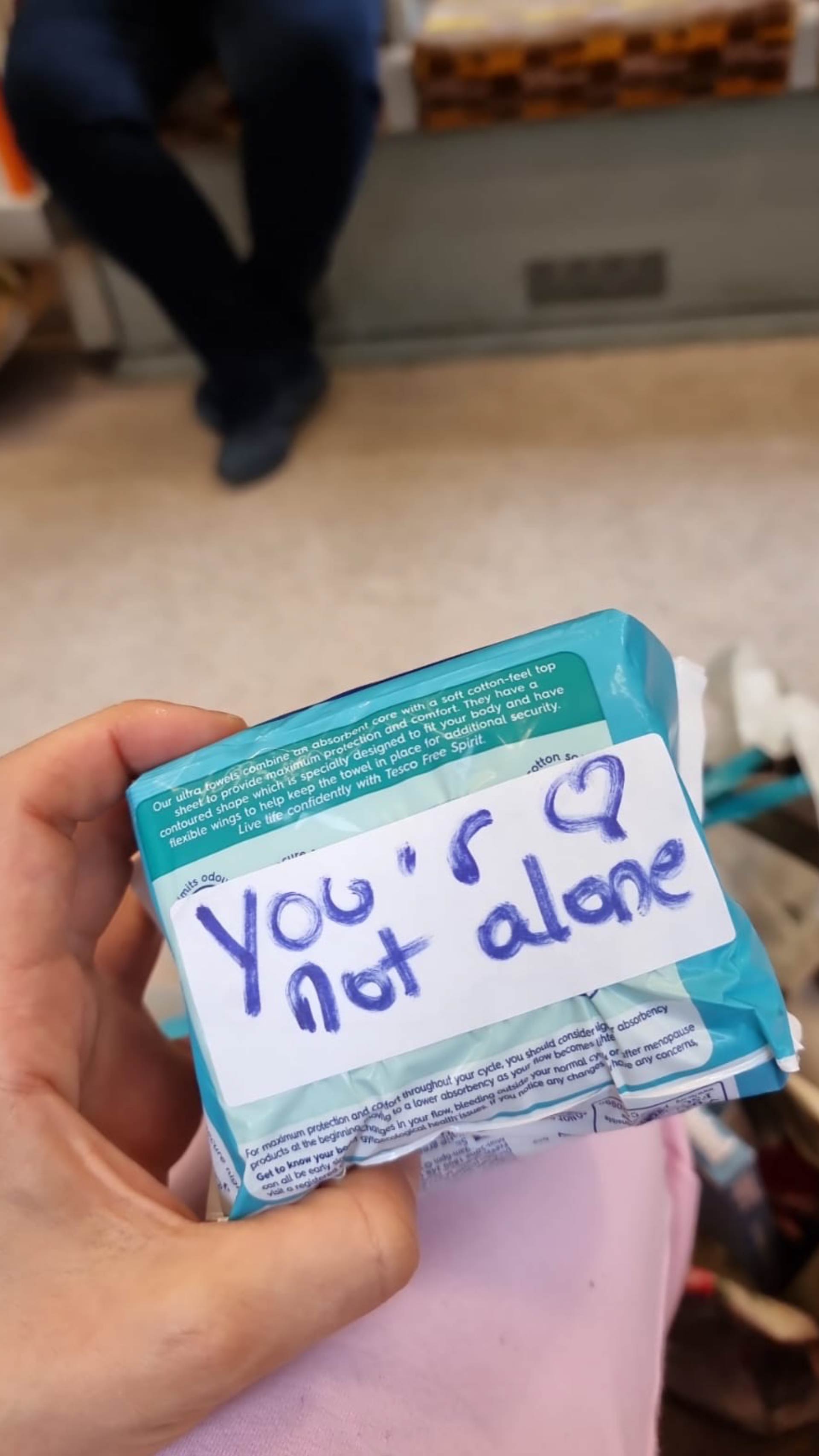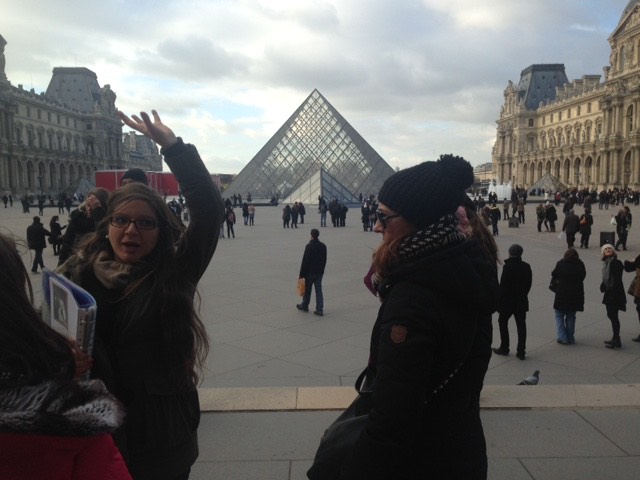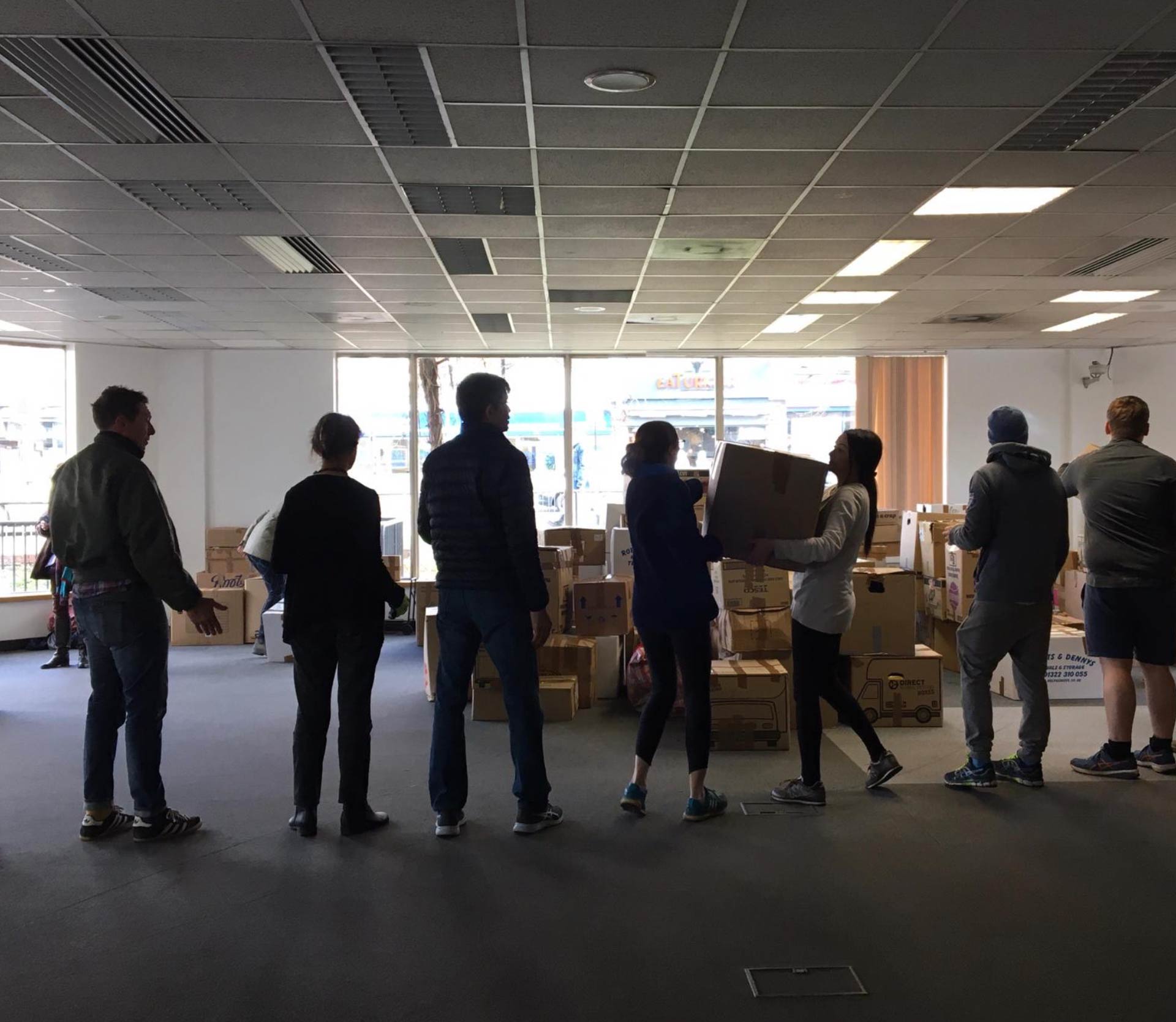
He walked for hours on the streets of San Isidro. She went barefoot, aimlessly, and often lost track of time until her feet bled. No one seemed to care that it was cold or that I had been on an empty stomach for days. Nor that he was only 9 years old.
“I lived through the street war”, Andrea Sandi (36) tells Infobae today. “The one that you see on every corner and remains invisible, because there are few who act to change reality,” he emphasizes. Perhaps that is why from London, where she emigrated, she is an active volunteer for four social organizations: one of them that aims to bring assistance to refugees who escaped the horror of the Russian invasion of Ukraine. “I'm on the other side of the counter. A place I dreamed of even in the dark,” he adds.
Far from forgetting his past, blocking it or denying it, he uses it as a tool to build the future of others. For weeks now, Andrea has left her two children in the care of her husband, and uses her free time to collaborate with the humanitarian cause that is going through the world. He joined the Polish Centre in London. “We received a large number of donations of clothing, medicine, and food... we cataloged them and ordered them in boxes to send them to the border. It takes up to three days for trucks to reach their destination.”
But Andrea does something else. In handwriting, personalize the shipments. “I wrap feminine dressings like diapers with a message of hope, it's my way of containing women from a distance. I write 'everything will be fine' so that when they receive it they know that they are not alone”, she admits.

Growing up in desolation
He thinks he was born in San Isidro, although he also spent much of his time in Tigre. “I never really knew that part of the story. Deep down, I guess my conscience blocked it.” He only remembers an absent father, and an unemployed and unstable mother. “I used pills, I was restless, nervous, always collapsed. And more than once we spent weeks on the streets. I felt fear, anguish, very cold, but I knew that I could not say anything to him so as not to generate a burden on him.”
When he wasn't wandering around or asking for money at traffic lights to be able to eat, he was in some children's home in the province. “They didn't treat me well, sometimes I shared a mattress on the floor to rest. Not to mention a hot dish on the table. Everything was very precarious. They were not ready to receive children.”
He just got to know a new world when he stayed to sleep at the house of a friend of his mother. “He left me one day, and asked if he could take care of me one night. He didn't come back for a week, those days I slept in a clean bed, they served me food on the table, they even combed my hair, it was beautiful.” From there, something resonated in his heart. “Every time I could imagine such a life. Those few moments built me.”
Life went on between nights in the open air and institutions for minors.
The exit door
Relive the moment as if it were today. On a hot January 10, 2007, he came of age. I was free. He could leave the children's home. “I ordered everything I had in a consortium exchange, and I walked out the door.” In his pocket he had $6000, savings from three years of work, all destined to pay the rent of an apartment he got in microcentro. “At first I slept on the floor with some blankets... but I was calm. I finally knew silence.”
Unstoppable, he juggled in order to stay on his own, until his chance came. “I got a job at the Ministry of Tourism and saw a lot of people traveling for international fairs and exhibitions. I dreamed of traveling! Until, in 2009, the influenza A (H1N1) pandemic gave me the chance to go to Europe.”
She traveled to France for a year to work as a nanny, without imagining that she would no longer return to Argentina. In Paris, he not only learned to speak French, but he entered one of the most prestigious universities in Europe, La Sorbonne. She was chosen among the best averages. “I think my getaways from the children's home to electrical workshops, or gardening courses, gave me the pace to prepare for an income.”

While studying history, he worked as a tour guide and also worked in a restaurant. Little by little he was achieving his goals. She moved to London, where she met her husband. Today they are parents of two children. “I'm still humble. I don't have great luxuries, but I have a home with beds, food, heating, no smoke or drugs, the one that I knew existed but that hadn't touched me.”
Helping others
In the pandemic he had to put his profession on pause. With some free time, he wanted to give back to others all that he had earned with so much effort. This is how it was part of was part of PACT - an organization that works in more than 40 countries - and provides support to women who have suffered situations of abuse, who do not speak English, and who - for example - are on trial with their husbands and I can translate their papers and accompany them to the Court.

It also helps in an organization that takes care of people who are in their last years of life. “People tell me you're very good, and I say ''you can do it too. ' In this way, I create a network of Spanish-speakers through WhatsApp so that more and more people are collaborating.
Andrea looks further. “The desolation leaves indelible consequences. I deal with them every day. That's why it's important for governments to be able to plan assistance policies to mitigate collateral damage from war.”
KEEP READING:
Últimas Noticias
Debanhi Escobar: they secured the motel where she was found lifeless in a cistern
Members of the Specialized Prosecutor's Office in Nuevo León secured the Nueva Castilla Motel as part of the investigations into the case

The oldest person in the world died at the age of 119
Kane Tanaka lived in Japan. She was born six months earlier than George Orwell, the same year that the Wright brothers first flew, and Marie Curie became the first woman to win a Nobel Prize

Macabre find in CDMX: they left a body bagged and tied in a taxi
The body was left in the back seats of the car. It was covered with black bags and tied with industrial tape
The eagles of America will face Manchester City in a duel of legends. Here are the details
The top Mexican football champion will play a match with Pep Guardiola's squad in the Lone Star Cup

Why is it good to bring dogs out to know the world when they are puppies
A so-called protection against the spread of diseases threatens the integral development of dogs




